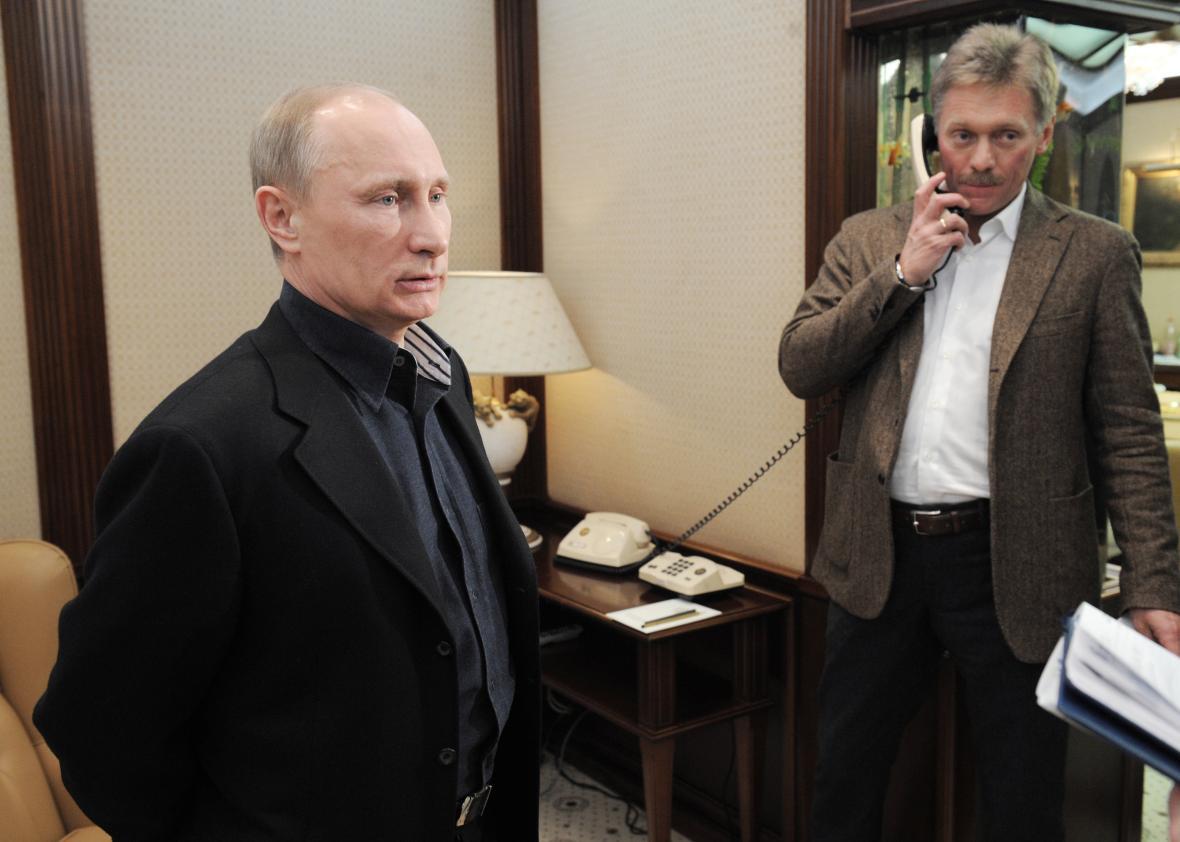If you want a one-sentence phrase to describe the unique strategy by which Russia carries out aggressive military actions without feeling any need to acknowledge what it’s actually doing, you could do worse than Kremlin spokesman Dmitry Peskov’s suggestion to reporters Friday: “Please do not cling to meanings in this case.”
Peskov was discussing his boss, Vladimir Putin’s, suggestion earlier on Friday that Russia is now supporting the Free Syrian Army, the main internationally backed rebel umbrella group fighting against Bashar al-Assad, providing it with air cover, arms, and ammunition to fight against ISIS.
This would be strange, as Russia is also the primary backer of Assad’s military forces. Russian leaders have said they’d be willing to support the group before but have also targeted areas controlled by the group with airstrikes. The FSA has rejected Russian offers of help in the past. The U.S. says it can’t verify Putin’s latest claim that the Russian military “assists in uniting the efforts of government troops and the Free Syrian Army.” And Peskov neither confirmed nor denied that Putin was implying Russia directly supports the FSA, saying, “Russia supplies weapons to the legitimate authorities of the Syrian Arab Republic.”
The question of “legitimacy” is a key one as we get deeper into the internationally backed negotiations aimed at ending the fighting between the Syrian government and non-ISIS rebel groups. One sticking point in the talks has been which armed groups would be allowed to participate.
At talks in Saudi Arabia this week, Syrian rebel representatives, including several FSA affiliated groups, said they would agree to enter into peace talks with the regime, but continue to maintain that Assad must step down. But while Russia may view the FSA as legitimate, Assad said Friday that he would not negotiate with any armed opposition groups, telling a Spanish interviewer, “For us, in Syria, everyone who holds a machinegun is a terrorist.”
That would appear to make the talks a nonstarter: There’s not much to negotiate if the Syrian government won’t negotiate with any armed rebel groups and will never agree to the opposition’s demands that Assad step down. The two sides’ positions don’t appear to leave a lot of room for compromise or accommodation, but it’s still early in the process and after all, this is Syria: Please do not cling to meanings.
